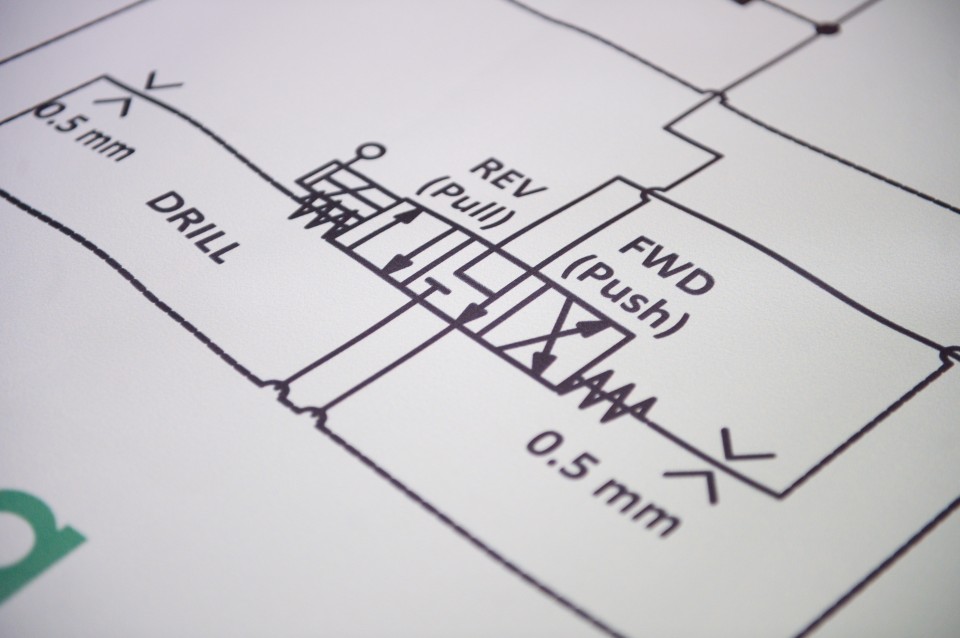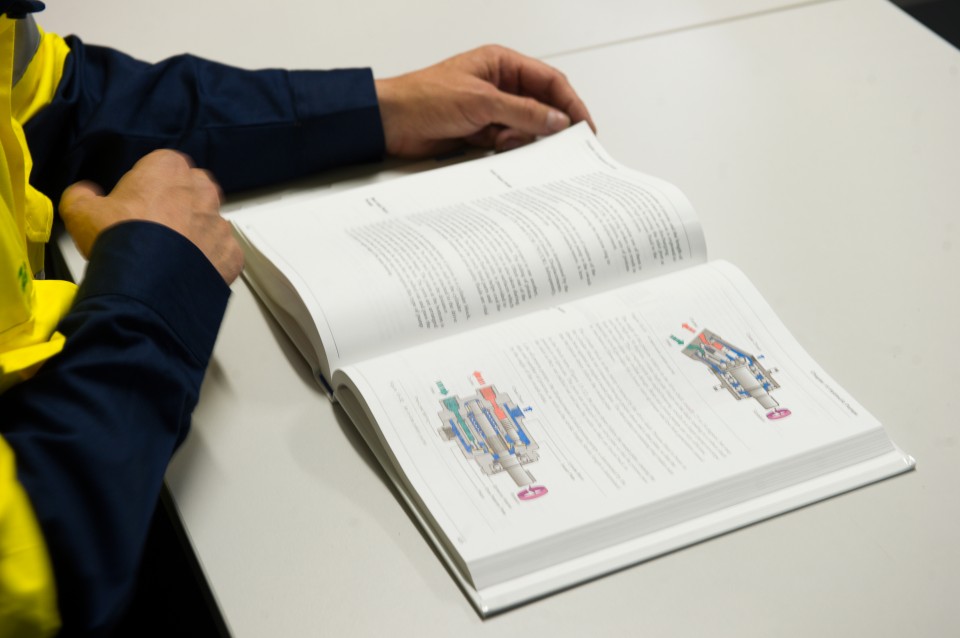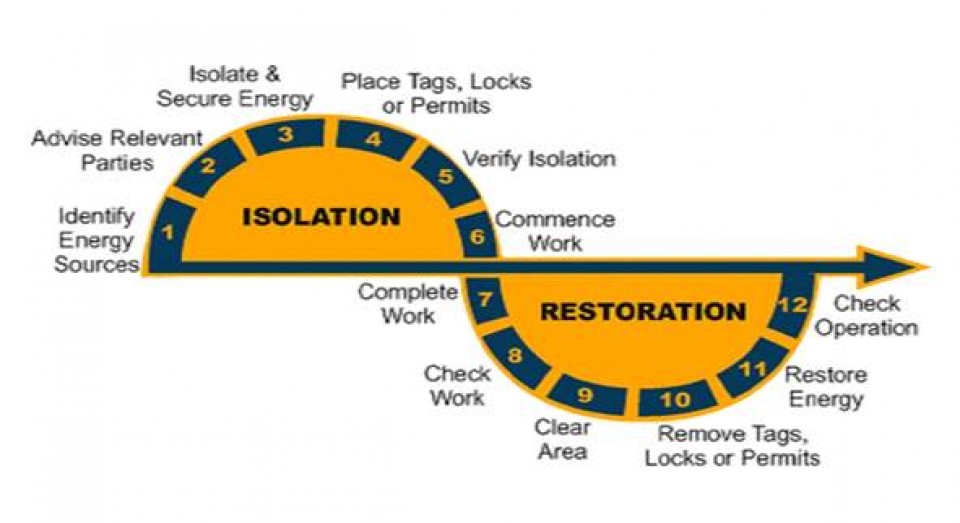Hydraulics Refresher (Refresher of the 6 or 8 day format or previous 5 or 6 day course)
Cost $550.00 ex gst
Duration 8 hours = 1 Day
Maximum of 6 students
Upon completion students will receive a Certificate of Attendance.
Details
The purpose of the refresher course is to revise the knowledge and principals taught in APT’s 6 or 8 day course (or previous 5 or 6 day courses). The information covered in the refresher has been specifically chosen as the most industry relevant information with which to refresh a student’s memory. The course has also been designed to draw on each students own experiences since completing the course.
The course will be mostly practical based using APT’s training equipment and machine simulation boards. There will be some theoretical sections and group discussion is encouraged throughout all of the day.
It is recommended that everyone completing training, participate in a refresher training course every 2 years.
APT’s Nationally Recognised Fluid Power courses provide students with the educational requirements of Competent Person status in support of MDG41.
As you can imagine, it is important for individuals with specialist skills to periodically reinforce the important concepts and update their knowledge to current technologies, equipment and health & safety expectations.
APT’s Fluid Power Refresher training is a single day event which can be delivered at your site or at our Toronto NSW training centre. This is the perfect environment for students to receive intensive follow up tuition with equipment in safe, controlled, non-production surroundings.
Students will recap on fluid power safety and hydraulic principles, schematic reading and interpretation. Real world practical exercises will be carried out, including fault finding, troubleshooting and how to record fault finding and testing information. Testing of pumps, pump control and issues relating to contamination will be explored.
Students will be issued with a Certificate of Attendance to affirm their fluid power knowledge and commitment. Particular attention is paid to Safety and Awareness, Isolation and Dissipation.
Topics Covered
Safety and awareness will be covered throughout all of the day, isolation, dissipation and confirmation will be stressed in every activity. There will be a section specifically on the hazards of fluid power systems and control methods. Also included are some of the latest information, recommendations and products from the mining industry.
Fluid power principals will be reviewed. This will be done with practical involving a full test on a hydraulic cylinder to show both; internal resistance and pressure intensification. Students will then see the calculations of an intensified chock leg cylinder which reaches in excess of 3,350 bar! (49,000 psi.)
Schematics will be reviewed throughout the day; students will trace flows and identify components using circuits from machines relevant to their own worksites. Requests can be made for specific circuits prior to the course.
Pneumatic systems will be reviewed by way of circuit construction and commissioning. APT has working simulation boards of several safety circuits used on popular underground mining machines. These will be commissioned and then modified by way of assessment.
Hydraulic pump controls will be covered by schematic tracing exercises and by practicals on APT’s training equipment. APT can use up to four different power packs in the training centre and has several valve banks including the popular Danfoss and Rexroth units. Students have access to learn on the units they are most likely to use and can do both throughout the day as desired.
Accumulator circuits will be reviewed by a design and testing practical, students will test the residual pressure left in an accumulator once actuators have stopped moving and learn how to dissipate the remaining energy correctly.
Closed loop circuits and filtration will be covered in one commissioning exercise designed to clearly show the flow path and effect of valve adjustments on closed loop systems. This is relevant to a lot of track drive machines underground. The exercise also includes a circuit drawing component to assist the students with reading schematics.
Pressure controls are reviewed using our selection of SUN and SOUTHCOTT cartridge valves. Students will change valves and manifolds, set and adjust pressures and review the basic types of pressure valves and how they are used in real mining circuits.
Counterbalance and sequence valves will be covered using a purpose built replica excavator circuit. Students will undergo a full commissioning situation with real moving parts.
All these systems will be covered in the afternoon exercises for revision on fault finding. The circuits we can build involve Load sensing and pressure compensated pumps, sectional valve banks, Cartridge valves, Accumulators, Filtration, Sequencing, Pressure intensification and flow controls.
Students will be given schematics of the circuits that are built with realistic faults. Students must show the proper process of identifying and rectifying each fault and record information in the same manner they will be expected too in a shift log or work report.
Students will leave this course refreshed and confident to work with fluid power systems in their workplace in a safe and rewarding way.
How We Work
APT provide flexible training and an ongoing framework to build-on or formalise your existing skills and knowledge. In our courses, the use of advanced simulation and real world practices ensure optimal outcomes.
APT deliver training in a friendly, relaxed and comfortable learning and assessment environment. You can be assured that it’s to the best of our ability to support any special needs/requirements you may have with your learning.
Course Information
Training and assessment is usually completed at the APT Training Centre at Toronto NSW, however the course can be delivered at your own workplace if a full class is enrolled.
In such circumstances we bring the complete service to you including training simulations and fluid power equipment.
Course Assessment
Your trainer and assessor will clearly explain the assessment process to you and support you where necessary to ensure you have a full understanding of the process prior to commencing.
Some methods used to assess your competence include written questionnaires, verbal questions, third party reports, self assessment, log books or work journals, verified CV, workbook activities and certificate recognition of prior learning.
Course Outcomes
Successful students will receive a Certificate of Attendance.
Course Pre-requisites
It is preferred that students should have completed 6 Day Hydraulic or 8 Day Fluid Power Course.






